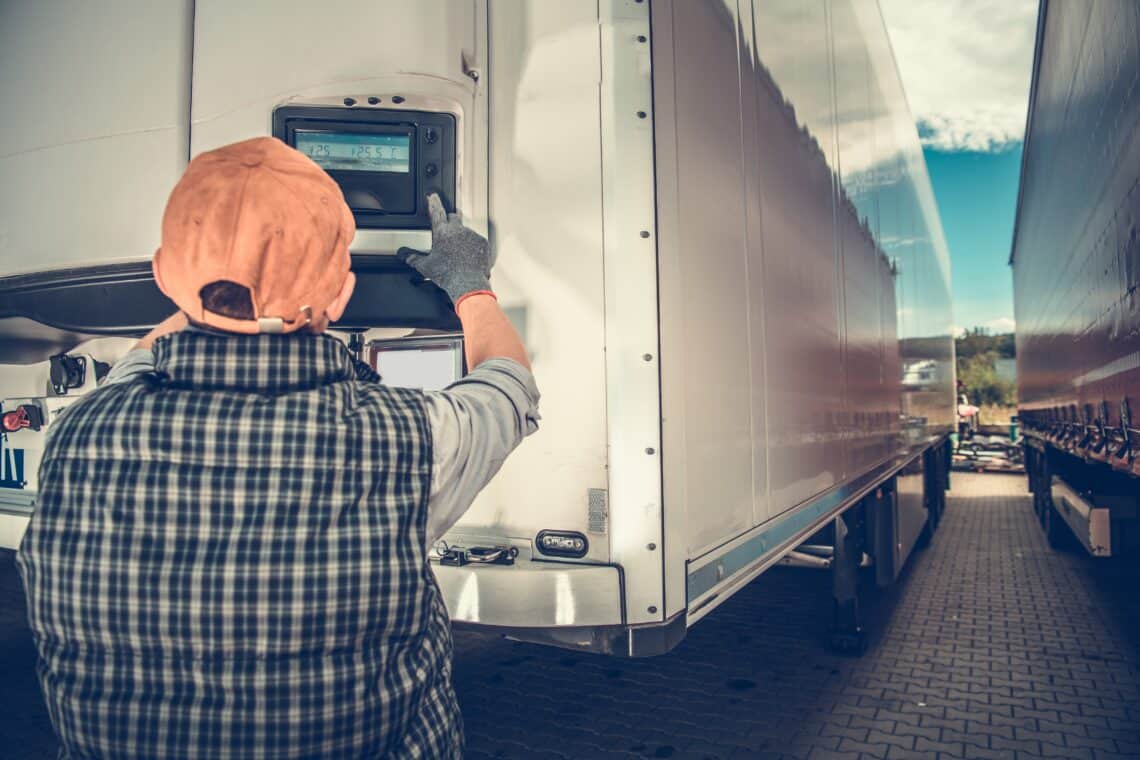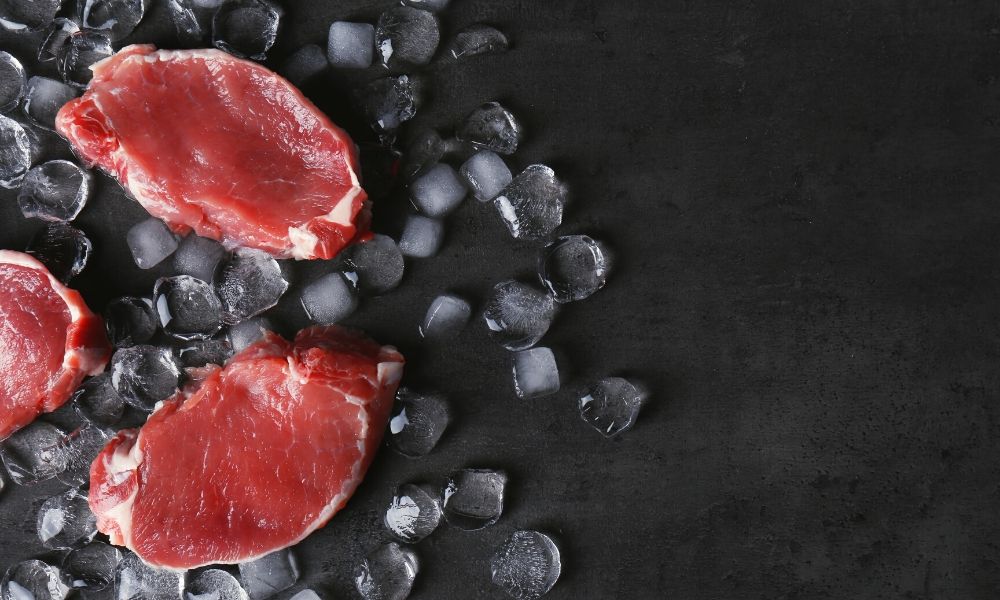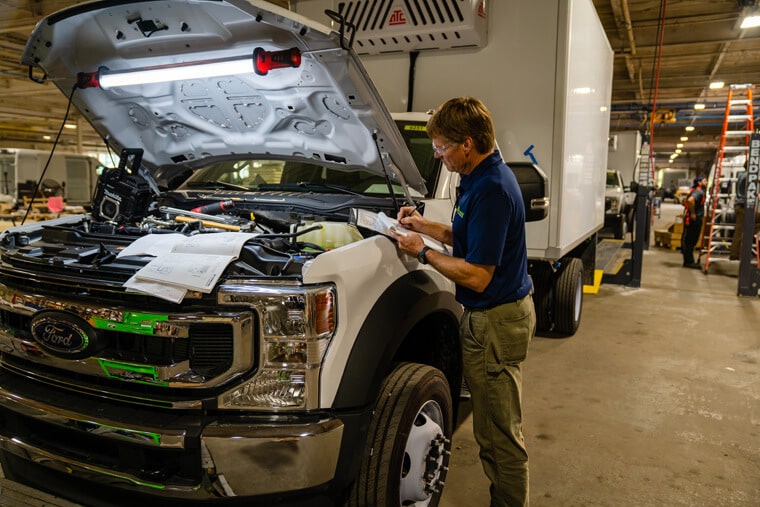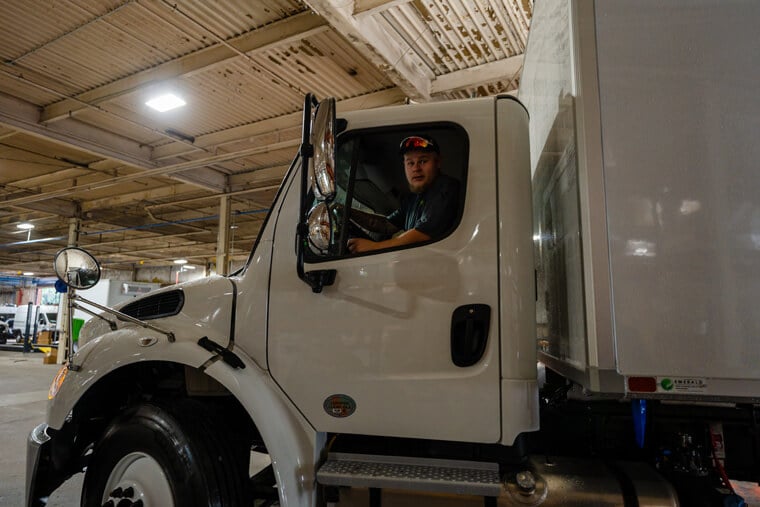
Troubleshooting Common Reefer Unit Issues
Joe Dickman | March 30th, 2022
Dealing with a broken-down reefer unit can be quite a hassle. Worse, if your refrigerated unit begins to malfunction while transporting cargo, everything’s at risk of spoiling or getting damaged. That’s why it’s essential to stay on top of maintenance and fix any problems as soon as you identify them. Find helpful tips for troubleshooting common reefer unit issues below.
Air and Fluid Leakage
Reefers contain multiple cooling systems that have the possibility of leaking both air and fluid. Monitor the condenser and compressor, which keeps perishables at the proper temperature.
Additionally, observe the equalization tubes, which regulate the amount of liquid refrigerant that enters the evaporator. Finally, inspect the doors for any fractured cooling hoses or belts as well as any damaged seals.
Malfunctioning Calibration Sensors
Your calibrators help regulate the temperature inside the cabin, and when they fail, your loads can spoil. Sensors notify drivers of fluctuating temperatures inside the reefer, but these sensors can malfunction.
When reefers give drivers incorrect readings or fail to provide timely alerts, it puts perishable products at risk. A certified technician can check the temperatures to determine whether these systems function correctly and give accurate measurements.
Damaged Condensers
Condensers serve as heat exchangers to help maintain consistent temperatures inside the reefer trailer. Components such as bolts, clamps, coils, and tubes allow the condenser to do its job. Whenever any of these components suffers damage, it can severely impact your cooling system’s ability to function. Ensure that the condenser motor is spinning and that the air is blowing away from the unit.
Trouble With Bulkheads
You use bulkheads to separate temperature-sensitive products from each other inside the same trailer. If air circulation via bulkheads becomes restricted, it could negatively affect the temperatures zones within the trailer. If you often ship a diverse range of items that require different storage temperatures, ensure that all pathways throughout the vehicle are completely clear.
Understanding these ways to troubleshoot common reefer unit issues can help guarantee your vehicles run smoothly. Emerald Transportation has a fantastic selection of beverage delivery trucks that can make the perfect addition to your refrigerated transportation fleet. Feel free to contact us with any questions about our vehicles.
Related Articles
Contact Us
Feel Free To Contact Us If You Have Any Questions
What does under DOT mean?
Questions regarding DOT requirements come up often. 10,000 lbs GVW (gross vehicle weight) and over are commercial vehicles that fall under the Department of Transportation regulatory requirements.
What is the difference between GVW and payload?
GVW or Gross Vehicle Weight is the entire weight of the vehicle including the payload. The payload weight represents the amount of cargo you are hauling.
What is a self-powered unit and a vehicle-powered unit?
A self-powered unit has its own fuel source and will run independent of the truck. This is the heaviest and most expensive option. While vehicle-powered units run off the engine via a compressor mounted on the engine. These are less expensive and lighter in weight but you must run the truck or plug the electric standby into shore power.
What does K-factor mean and why is that important?
K-factor is a term that stands for the overall insulating value of the container (truck body). Quite simply the lower the K-factor the better the truck body will be able to maintain a given temperature and require less energy to do so.
How much lighter is a Poly Van vs a US spec body?
Poly Van bodies are very light. On average we estimate we are 75-150 lbs per foot lighter than a traditional sheet and post foamed in place body. These weight savings translates to less fuel burn and less CO2 emissions, along with added payload, the most important benefit.






